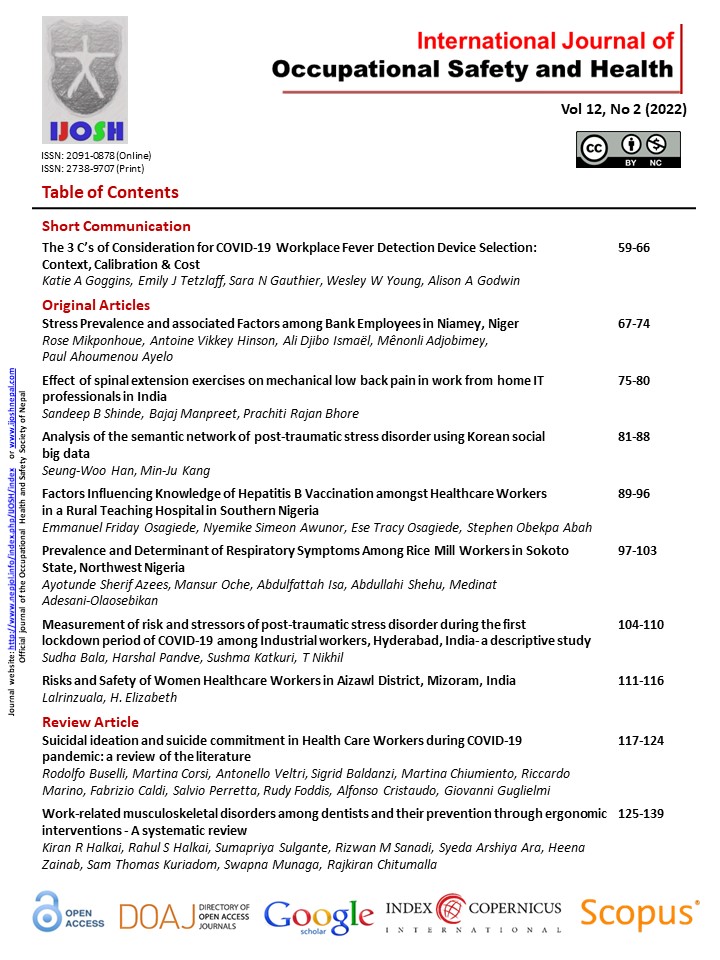Effect of spinal extension exercises on mechanical low back pain in work from home IT professionals in India
DOI:
https://doi.org/10.3126/ijosh.v12i2.39022Keywords:
Mechanical low back pain, Work from Home, IT professionals, Extension exercises, McKenzie, Extensor StrengthAbstract
Introduction: Prolonged sitting with awkward posture and long working hours are the predisposing factors for developing Mechanical Low Back Pain (LBP) in IT professionals. Poor dynamic trunk extension performance is associated with back-related permanent work disability and recurrence of LBP. The purpose of this study was to find and analyze the effect of spinal Extension exercises on Mechanical Low Back Pain in work from home IT professionals.
Methods: In this comparative study, 50 work from home IT professionals from various companies were approached through emails. Subjects were randomized into two groups: Group A (n=25) was study group, and Group B (n=25) was control group. Subjects from both groups exercised three times per week for 4 months and followed the ergonomics. Pain intensity, functional disability, and strength of back extensor muscle were assessed at baseline and at the end of week 4.
Results: Group A had lower pain intensity (3.24 ± 1.45 vs 4.76 ± 1.53) and functional disability (4.24 ± 2.14 vs 11.44 ± 1.75) and significantly higher back extensor strength (25.44 ± 4.3 vs 22.24 ± 4.58; P<0.05) than Group B at the end of week 4.
Conclusion: Spinal Extension Exercises should be incorporated in work from home IT professionals with mechanical low back pain to stabilize back muscles and improve physical functioning with minimal discomfort. In line with this, IT professionals should also be made aware of the risk factors associated with mechanical low back pain and should be encouraged for maintenance of physical health and fitness.
Downloads
Downloads
Published
How to Cite
Issue
Section
License
Copyright (c) 2022 Sandeep B Shinde, Bajaj Manpreet, Prachiti Rajan Bhore

This work is licensed under a Creative Commons Attribution-NonCommercial 4.0 International License.
This license enables reusers to distribute, remix, adapt, and build upon the material in any medium or format for noncommercial purposes only, and only so long as attribution is given to the creator.





